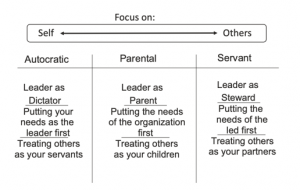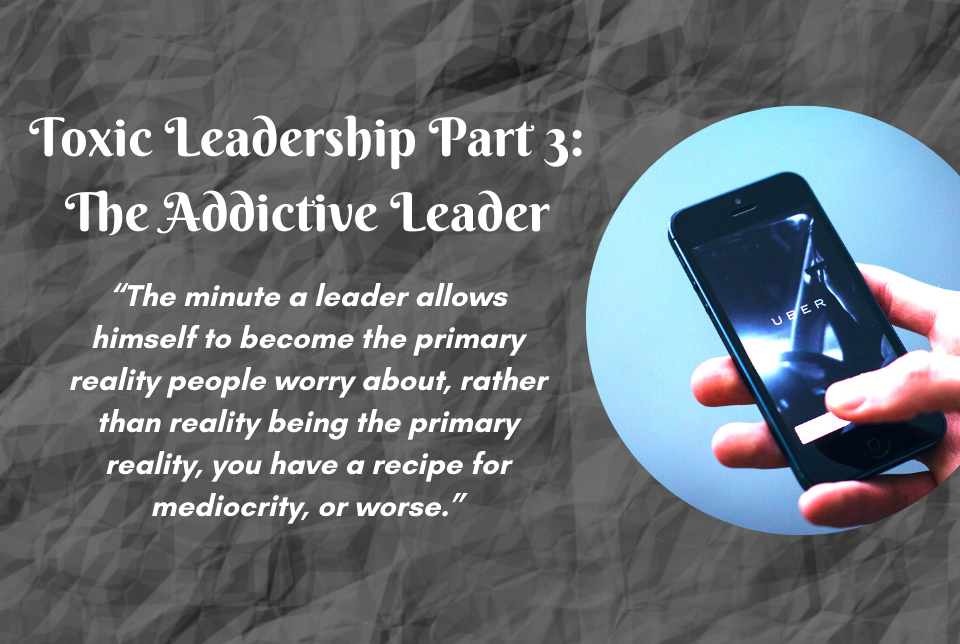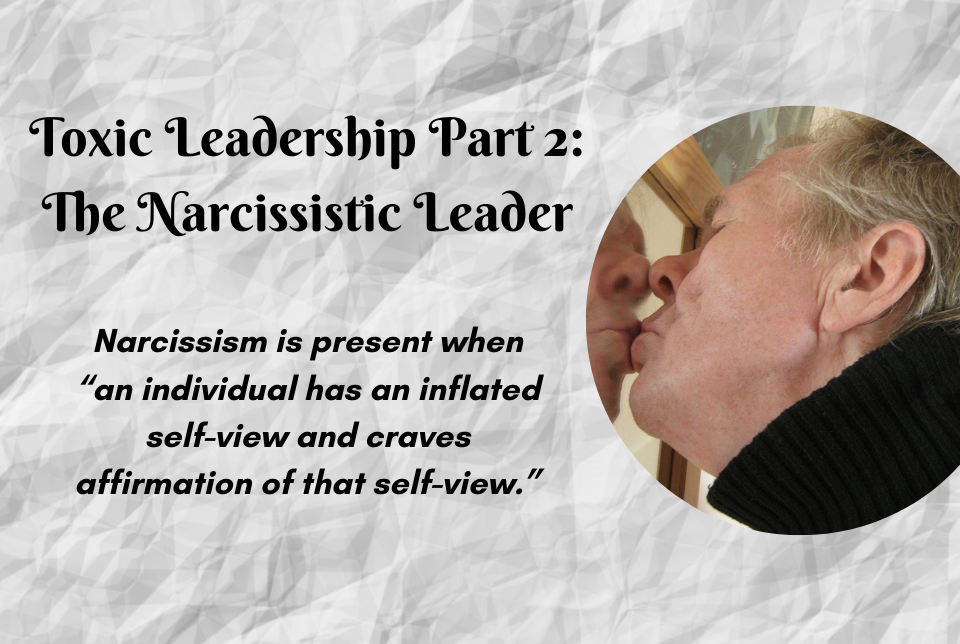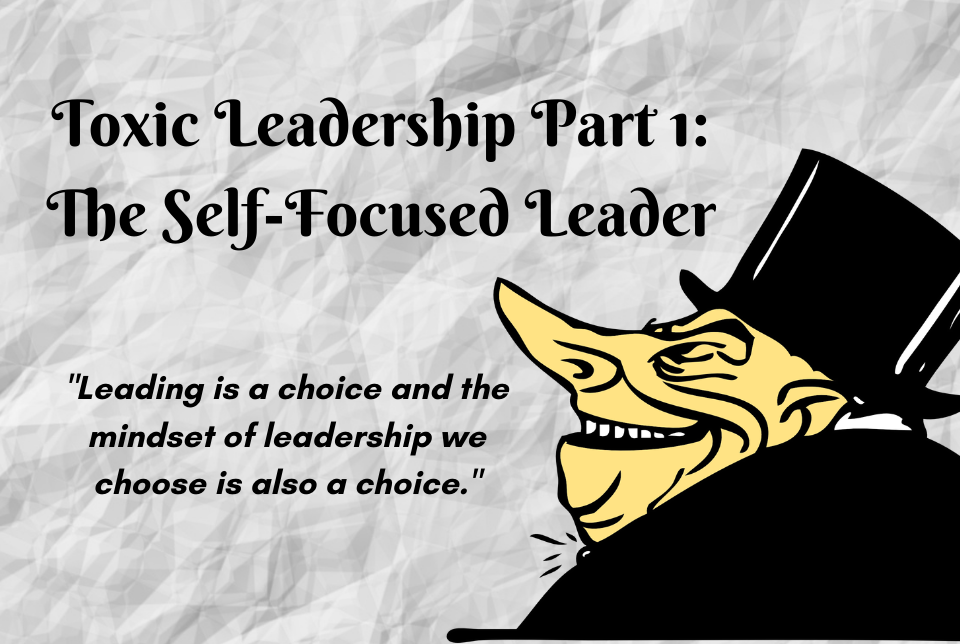Toxic vs. Servant Leadership (Part 4): The Parental Leader
The final article in this series on toxic leadership will focus on a mindset of leadership that is not completely toxic but carries many of the problems of self-focused, narcissistic or addictive leadership. Parental (or paternalistic) leadership is a way of leading that combines authoritarian leadership (power over followers) with benevolence. It is the leadership of the kindly father (or mother) who wants to take care of their “children” (followers) while keeping it clear who is in charge and who alone has the authority to act.
Consider the parental leader contrasted to the autocratic leader. The parental leader leads for him or herself, maintains an authoritarian approach to power but treats followers with benevolence while the autocratic leader is authoritarian and exploits the followers for the leader’s purposes. Clearly, parental leadership is an improvement over the completely toxic leadership mindsets of the self-focused, narcissistic and addictive leader, but the parental leader still maintains authority over the followers (making the decisions, keeping the followers in their place) while nurturing and providing for them along the way. 
It must be stated here that many followers desire this approach. They want to be told what to do and they want to be taken care of by someone more powerful. So, what can be toxic about an approach to leadership that seeks to nurture and provide benevolence?
Here it is helpful to contrast the parental mindset of leadership with the servant mindset. Parental leaders treat their followers as children, keeping them in subservience to them and dependent on them. The followers of a parental leader will appreciate the nurture and care provided but they will not move beyond the limited role of “child” in the leader/follower relationship. Parental leadership then produces compliance over commitment, and dependence over interdependence. The followers of the parental leader are held back; limited to a response role and not allowed to move into taking more leading roles.
In contrast, servant leadership puts the needs of the follower first and (this is key) treats them as partners in the work. The servant leader changes the use of power from the authoritarian power of the autocrat and parental leader to that of empowerment of the follower. Servant leaders expect more from their followers and are not content to leave them in a responsive child-like role. Servant leaders want their followers to lead and to develop into true partners in the work. Followers are expected to create solutions, take the lead, speak out, challenge the process. They are expected to lead. Imagine an organization where everyone is encouraged (expected) to use their gifts to the fullest to further the work of the organization; a place where everyone (leaders and followers) are encouraged to lead to make a difference. Imagine the full creativity of each person freed up to provide solutions to the problems faced by the organization as it moves into an uncertain future.

We must move beyond the toxic and partially toxic mindsets of leadership that are prominent in so many of our organizations. Yes, autocratic and parental leaders are the most common (by far) and therefore unfortunately they set the model of what leadership looks like for so many. But, there is another better way. Servant leadership challenges this status quo to create a way of leading that turns workers into partners and followers into empowered leaders.
Can you imagine an organization taking advantage of this? Can you envision the creative power that can be released through such a bold leadership mindset?
I hope, through these past four articles, that you have gained some insights into this dark world of the toxic leader to better understand where the danger is and, I trust that you have seen that there is a better way to lead; a way that leverages a different kind of power to move the world to a better place.
Your fellow servant,
Jim
James Laub, Ed.D.
jlaub@servantleaderperformance.com
561-379-6010
Laub, J.A. (2017). 40 days toward a servant leader mindset. Jupiter, Florida: Servant Leader Performance.
Laub, J.A. (2018) Leveraging the power of servant leadership: Building high performance organizations. Cham, Switzerland: Palgrave MacMillan.




